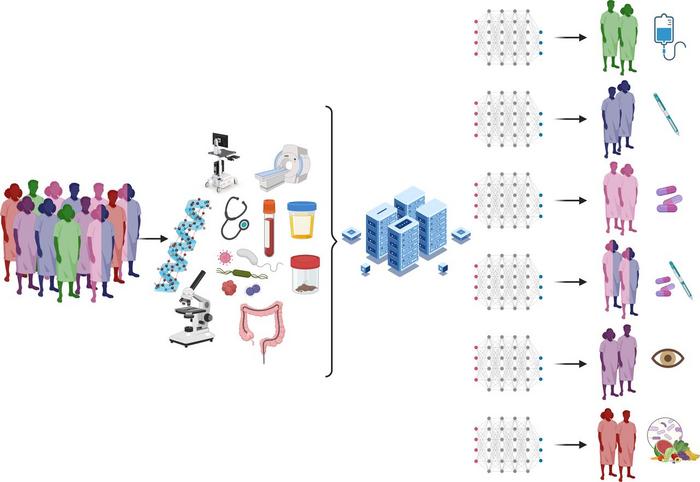The prevalence of inflammatory bowel disease (IBD), encompassing ulcerative colitis (UC) and Crohn’s disease (CD), is rapidly increasing worldwide, affecting an estimated 6.8 million people. This surge brings significant economic burdens, with annual healthcare costs exceeding $12,000 and $7,000 for CD and UC patients, respectively. Tailored drug selection based on individual factors can potentially reduce these costs and improve patient outcomes.

Credit: By Little RD, Jayawardana T, Koentgen S, et al.
The prevalence of inflammatory bowel disease (IBD), encompassing ulcerative colitis (UC) and Crohn’s disease (CD), is rapidly increasing worldwide, affecting an estimated 6.8 million people. This surge brings significant economic burdens, with annual healthcare costs exceeding $12,000 and $7,000 for CD and UC patients, respectively. Tailored drug selection based on individual factors can potentially reduce these costs and improve patient outcomes.
Factors associated with a Western lifestyle such as urbanization, high animal protein intake, ultra-processed foods, and reduced fiber consumption are linked to IBD onset. Gut microbial diversity also plays a key role, with rural communities exhibiting greater microbial richness compared to urban populations. Understanding these environmental and microbial influences is crucial for developing preventive strategies.
Despite significant scientific advancements, the exact causes of UC and CD remain elusive. A complex interplay of genetics, immune dysregulation, gut microbiota alterations, and environmental factors contributes to disease development. Current immunosuppressive treatment options require more personalized approaches.
The field of precision medicine offers hope for personalized IBD treatment. We can potentially predict treatment response and optimize therapy selection by analyzing individual genetic, immunological, and microbial profiles. This “multiomics” approach, coupled with machine learning, holds the key to unlocking new therapeutic targets and improving patient outcomes.
This review dives deeper into IBD’s genetic, immunological, and microbial drivers, highlighting potential predictive markers of treatment response. We explore the principles of machine-learning-powered bioinformatics and collaborative research, paving the way for future precision medicine strategies in IBD. By embracing personalized approaches, we can unlock a brighter future for patients living with this chronic condition.
See the article:
Little RD, Jayawardana T, Koentgen S, et al. Pathogenesis and precision medicine for predicting response in inflammatory bowel disease: advances and future directions. eGastroenterology 2024;2:e100006. doi:10.1136/egastro-2023-100006
About eGastroenterology
eGastroenterology is a new, open-access, and open peer-reviewed BMJ Journal, which focuses on basic, clinical, translational, and evidence-based medicine research in all areas of gastroenterology (including hepatology, pancreatology, esophagology, and gastrointestinal surgery).
For more information, please visit: egastroenterology.bmj.com and follow us on Twitter (@eGastro_BMJ).
Sign-up to Email Alerts for eGastroenterology: https://emails.bmj.com/k/Bmj/jausu/egastroenterology
Journal
eGastroenterology
DOI
10.1136/egastro-2023-100006
Article Title
Pathogenesis and precision medicine for predicting response in inflammatory bowel disease: advances and future directions




